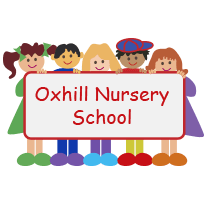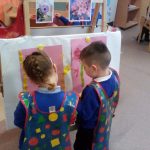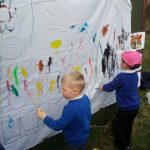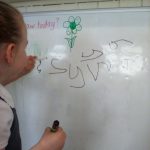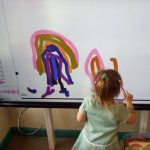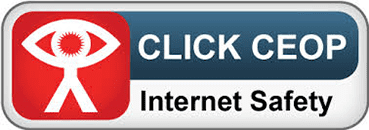Here is an overview of our areas of learning and development at Oxhill Nursery School.
Learning through Play
Young children learn by doing, touching and seeing for themselves – through play. Play that is well planned and pleasurable helps children to think, increase their understanding and improve their language competence. It allows children to be creative, to explore and investigate, to experiment and to draw and test their conclusions.
All aspects of children’s growth and development are linked and these are promoted by the varied play experiences available within the nursery environment.
Personal, Social and Emotional Development
This area of learning has a focus on Self-Regulation, and Managing Self and Building Relationships
We aim to develop children’s ability to work, play, co-operate with others in a group beyond the family. Children are allowed time to develop personal values and an understanding of who they are and where they fit into the world around them.
Opportunities to take turns, share and help each other, foster a caring attitude and be aware of the needs and feelings of others are carefully planned and used to full potential.
Communication and Language
Communication and Language encompasses Listening, Attention & Understanding and Speaking.
This area of learning involves giving children opportunities to experience a rich language environment; to develop their confidence and skills in expressing themselves; and to speak and listen in a range of situations.
We aim to develop children’s competence in speaking and listening and help them to become readers and writers. By developing all aspects of language children are given the foundation for literacy.
Children are encouraged to enjoy books, stories and poetry, for their personal language development and to extend their views of the world, excite their curiosity and fire their imagination. This also brings tremendous pleasure, expands other play activities and develops concentration and listening skills. Through positive relationships children respond to eye contact, verbal and non-verbal interaction; they anticipate and initiate communication with others, learning to respond in many ways. They do this through listening to others, watching and copying them and through joining in with rhymes, stories and games using sounds and words. They learn to figure out the important features of communication and how to respond. A lot of time is spent in nursery, talking and listening to what your child has to say.
The environment contains signs, symbols, words, songs and notices. They also have books and pictures that take into account interests, backgrounds and cultures. Language development is very important as it is the basis for all learning. Extending their vocabulary provides children with a tool to express themselves.
Physical Development
This area of learning focuses on Gross Motor Skills and Fine Motor Skills
Our aim is to develop physical control, mobility, awareness of space and manipulative skills, using both the indoor and outdoor environments. Waterproof jackets and trousers are provided for the children to enable them to access the outdoor area in all weathers.
We feel it is important that children establish positive attitudes towards a healthy and active way of life. Healthy children have lots of energy and they need space to run freely, climb, dig, skip, jump, roll, crawl, jump, dance, and learn to balance on equipment.
Access to a wide range of equipment helps to develop manipulative skills, hand-eye and general physical co-ordination. Participating in these activities can help to build self-awareness and confidence.
Fine manipulative skills are developed with construction toys, jigsaws, threading, use of small tools e.g. scissors. Children need to be able to manipulate and control small items to enable them to use a pencil and therefore make shapes and later, letters and numbers.
Snack times and cooking sessions are utilised to promote social skills and the importance of making healthy food choices. Children are taught the importance of good oral health and teeth cleaning. We also encourage children to be independent in their self-care skills.
Literacy
This area of learning covers Comprehension and Word Reading and Writing
A selection of books and story sacks are available throughout the Nursery for children to access independently or as part of a group in story sessions with an adult who encourage discussions about the stories they share. We don’t generally teach reading directly as children are at different stages, but we may introduce activities that are a pre-requisite to learning to read. We spend a lot of time learning nursery rhymes and songs.
Pre-writing skills are encouraged in many areas of the nursery. Children make marks with crayons, paint, pencils and other tools in the sand, soil, dough and clay.
Children need to go through these stages before they are able to control a pencil well enough to ‘write’ a letter/number (so even if it looks like scribble, it is part of a process).
When you show your child ‘writing’ at home, we suggest that it is predominantly ‘lower case’ letters e.g. a, b, c, d, e, f, g etc. not capitals. Please ask, we are happy to share good practice.
Please watch this short video on how to form lower case letters correctly.
Mathematics
This area of learning focuses on Number and Numerical Patterns
This area involves providing children with opportunities throughout the Nursery to develop and improve their skills in counting, understanding and using numbers, making comparisons, ordering numbers, calculating simple addition and subtraction problems; and to describe shapes, spaces and measures.
The children have opportunities to explore, practise, learn and talk. They practise skills and gain confidence and competence. Staff use mathematical words and ideas when supporting children in their play. We can use everyday items and purposeful resources for counting, calculating and playing with shapes and patterns both indoors and outdoors. Stories, number songs and imaginative play also help with mathematical understanding.
Mathematics is happening all the time in young children’s lives, e.g. out shopping, in the car, at home, on the bus, in the cafe. We encourage you to make it fun for them.
Understanding the World
This area of learning covers Past and Present and People Culture and Communities and The Natural World
We aim to guide children to make sense of their physical world and their community through opportunities to explore, observe and find out about people, places, technology and the environment.
Through a variety of experiences, the children are made aware of themselves and their families. They have first-hand experiences to observe, predict, make decisions and have discussions through opportunities to experiment and investigate through the natural environment e.g. working in the allotment, growing vegetables/flowers and exploring natural objects and caring for living things.
We use the immediate environment as well as further afield; we discuss weather, the changing seasons, other countries in the wider world. Children can discuss their past and what they remember – we use artefacts and resources to show history in a simple way. Staff ask open-ended questions like, “How can we..?” and “What would happen if…?” are used.
Children have access to interactive screens in each class and engage with programs which are designed for young children and offer an introduction to Information Technology and the basic skills required. We have a selection of ICT equipment. ICT is about learning to control equipment as well as using computers. ICT includes microphones, recorders and robotic toys as well as every day equipment e.g. photocopier, digital cameras, video recorders and microwave.
Expressive Arts and Design
This area of learning includes Creating with materials and Being imaginative and Expressive.
This area supports children’s curiosity and play. They explore and play with a wide range of media, materials, tools including paint, glue, scissors, pens, recycled objects, clay, dough and slime as well as providing opportunities and encouragement for sharing their thoughts, ideas and feelings through a variety of activities in art, music, movement, dance, role-play, and crafts, which will help them to develop and use their imaginations and communication skills.
The children are supported to value their own unique ideas rather than reproducing those of someone else. Creating something that is unique; either by themselves or by working together in a group gives each child satisfaction and helps boost self-confidence.
It is the process that is important and will not always result in a recognisable finished product. Ask them about it and they will explain their ideas! It is important they use their own imagination in their pictures, designs and models.
Music/Drama involves listening to different sounds, making sounds, singing rhymes and songs. Most children enjoy role play and we also use music, rhymes, stories and puppets to stimulate children to act out roles in the role-play area which could be a home, cafe, shop, hospital, or vets.
Adobe Reader
You may need a product like Adobe Reader (free download) to view our PDF documents on our website.
